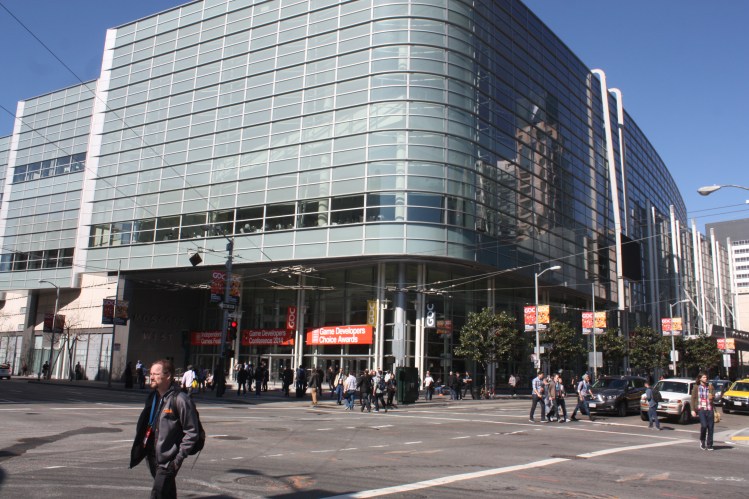GamesBeat: The advocacy track tends to present some of the most emotional talks.
Carless: We do have a lot of that. The advocacy track has become interesting because it has elements that might not fit in other places. Mark Deloura is giving an extended version of the talk he gave at DICE about working in the White House. We also have a talk on game developer unionization, which has been a topic for a number of years. Some academics in Canada have done a lot of research on the subject and they’re going to present it.
GamesBeat: As far as news goes, do you also look at particular sessions that might generate news, like the Microsoft presentation?
Carless: Often the news is happening in and around the show, these press conferences and such. It may be too technical for breaking news, but I think the Khronos session about glNext is very interesting. There’s some discussion right now about whether the next version of OpenGL is going to be—It could be really important to doing more cross-platform, cross-device gaming. We have some heavyweight people on that panel, so a lot of people are interested to see what that’s about.
GamesBeat: Is that a programming track?
Carless: It’s actually a sponsored talk again, presented by Valve. It’s Thursday at 10AM, “glNext: The Future of High-Performance Graphics.” But it’s really Khronos, the graphics guys, talking about their cross-platform graphics API designed for modern programming techniques and processors. There are also people on the session from Valve, Epic, Unity, DICE, and Oxide Games, the guys who’ve done a lot of work with Direct3D. There’s someone from just about every major game engine.
I don’t know if they’ll be breaking any major news at the panel, but this is the first many of us have heard of glNext. One of the reasons games still have trouble getting across to Mac and Linux from PC is because there’s not as much standardization as there could be.
GamesBeat: Who would have thought a graphics API could be a politically sensitive topic, too?
Carless: It is a little interesting. DirectX continues to be very important, but it’s still platform-specific. It’ll be interesting to see what happens.
GamesBeat: If you think about the health of the industry and the themes of the show, what comes to mind as far as the broadest view of GDC?
Carless: VR is definitely a theme. I don’t know exactly what’s going to be talked about or announced, but Sony has another talk or two about VR. John Carmack has his talk
along with some other talks from Oculus. There’s a talk by Valve that you should search for, talking about rendering for VR environments. Being able to render 360-degree environments and keep it smooth is obviously complicated.
A lot of people are thinking about VR, but we don’t know what major platforms – besides Samsung’s Gear VR – are going to come to the market and when. That’s not exactly slowing people down, but some people are quite a long way through VR games now and they’re quite keen to work out which devices will launch with a large installed base. That’s a big theme. This is the first year we’ve got real VR games that people have worked on for more than a few months. You’re going to see quite a lot of sophisticated VR games.
The sheer amount of choice you have in video games is going to be obvious. There will be a lot of games in and around the show. A lot of them are going to look really good.
GamesBeat: What do you think of the mix of people showing now? Do you see more mobile developers than console, for instance?
Carless: We’ve done a bit of surveying about what people are developing for. If you look at it, a larger percentage of people attending GDC are doing mobile or PC as opposed to console. But that doesn’t mean we don’t have a good set of people there. We continue to change to reflect what’s going on in the industry. I hope that the way we’ve set up the summits means that we have something for everyone.
GamesBeat: How many people do you expect this year, and how many exhibitors in the space?
Carless: We’ll only be certain about those numbers at the end of the show, but we had 24,000 attendees in 2014, and we’re expecting more this year judging by how things are going. We have the same amount of exhibit halls this year. Our main show floor is basically sold out. I think it’s fair to say we have more space being used, especially by Valve, than in previous years. The message for now is growth, definitely.
VentureBeat's mission is to be a digital town square for technical decision-makers to gain knowledge about transformative enterprise technology and transact. Learn More



